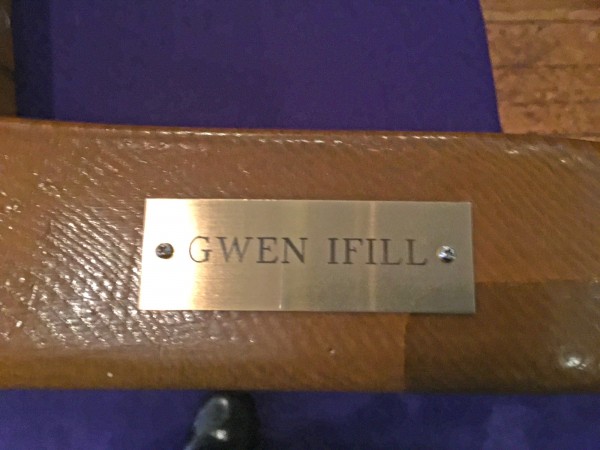 Throughout the state of Oregon, there are only five locations where veterans can receive mental health care. Given the size of the state – and the number of war veterans who live in rural areas – the availability of mental health care is something that is a top concern for people like Jim Willis, the director of the Oregon Department of Veteran Affairs.
Throughout the state of Oregon, there are only five locations where veterans can receive mental health care. Given the size of the state – and the number of war veterans who live in rural areas – the availability of mental health care is something that is a top concern for people like Jim Willis, the director of the Oregon Department of Veteran Affairs.
Since March, Willis and others have been visiting cities around the state as part of the Governor's Task Force on Veterans' Services to find out where care discrepancies exist. The good news?
"The centers that are here get very high marks for what they're doing," Willis said.
But the issue that repeatedly comes up before the task force is the shortage of psychologists, psychiatrists and counselors who have both wartime experience and mental health training.
"If you're a veteran, it gives you a certain degree of credibility that you didn't have before," says Dr. Garfield de Bardelaben, a psychologist at the Avel Gordly Center for Healing, who is a veteran and trained mental health professional. "The fact that I can talk about (my Vietnam experience) — that means something."
In order to try and expand the ranks of veterans who can act as mental health counselors, Oregon Sens. Ron Wyden and Gordon Smith have introduced the Healing Our Nations Heroes Act of 2008 which would establish a commission to oversee the mental health care provided to veterans, train veterans to counsel other veterans for mental health care needs and create a grant program.
The legislation comes on the heels of a letter released in May that revealed a Veterans Administration official in Texas had encouraged others to give fewer diagnoses of Post Traumatic Stress Disorder because of the cost to government.
According to Smith's spokesman, Luke Kintigh, "These reports were certainly very concerning and were part of the overall thought process in planning for the bill."
Kintigh said the legislation came from an accumulation of research from news reports, VA IG reports, state hearings and roundtables hearings with veterans, veterans service organizations, mental health providers and VA facility leadership in Oregon as well.
Smith also said in a typed release that, "Whether it is referred to as post-traumatic stress disorder, shell shock or combat fatigue, these very serious mental illnesses deserve equal attention and care as a physical wound."
Sen. Wyden said in a typed release, "Surviving the trauma of combat shouldn't sentence our forces to a lifetime of mental and emotional pain. This bill will help them move beyond the invisible scars of the battlefield and rebuild their lives at home."
Although much of the attention of the introduced bill was on PTSD, Willis said what he sees almost as much with returning Iraq and Afghanistan veterans is a dual diagnoses – PTSD and Traumatic Brain Injury – or as Willis and others familiar with the cases of soldiers with TBI call it – Traumatic Blast Injury. Nearly everyone with TBI also has PTSD.
"Aside from the impact it has on the brain, it also causes vision injuries, hearing problems, amputations, spinal injuries … all as a result of a blast," he said. "Vet Centers are very well prepared to handle TBI, the issue is availability. If all the vets lived in Portland, we'd be fine. But we're going to have to have a whole new look at how we do mental health counseling."
If passed, the Healing Our Nations Heroes Act would serve as a much-needed piece of the puzzle for veterans – who are experiencing a range of problems from previous conflicts as well as ongoing conflicts in Afghanistan and Iraq.
According to an article from the progressive think tank The Center for American Progress, 30 to 40 percent of returning veterans will experience some form of psychological trauma; One in five exhibit signs of PTSD; 40,000 Iraq and Afghanistan veterans were treated for substance abuse at a VA hospital; and there are estimates that between 150,000 and 300,000 veterans have experienced some level of TBI in both wars; and the number of licensed psychologists in the military has decreased about 22 percent in recent years.
The governor's task force has been examining all the solutions to expanding mental health care for veterans. Willis said they are looking at many different solutions in addition to what might be created if Wyden and Smith's legislation passes – contracting with private psychologists, placing small clinics in rural areas or other similar solutions aimed at getting veterans into a clinic.
"No vet should ever be deprived of top quality treatment because of their geographic location," he said.
- Home
- News
- Opinion
- Entertainment
- Classified
- About Us
 MLK Breakfast
MLK Breakfast- Community
- Foundation
- Obituaries
- Donate
04-19-2024 7:20 pm • PDX and SEA Weather






















































































































































































































































































































